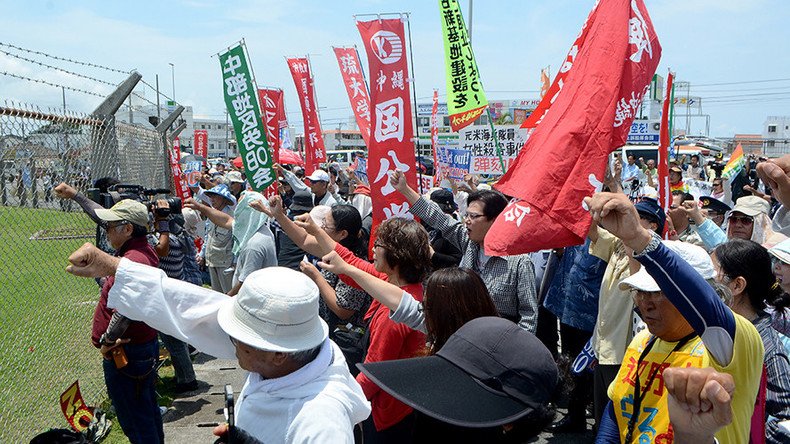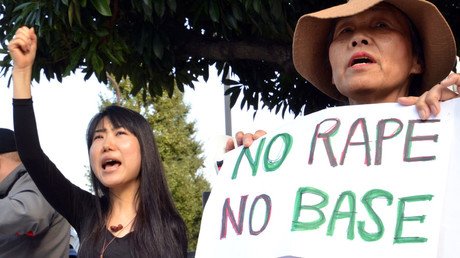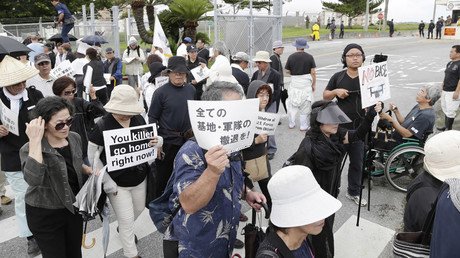US Marine confesses to raping Japanese tourist in Okinawa

The US Marine charged with the rape of a Japanese woman on the island of Okinawa has pleaded guilty to the crime. The incident sparked a diplomatic scandal between the US and Japan, and led to widespread anti-abuse protests at home.
The serviceman, Seaman Apprentice Justin Castellanos, 24, admitted to finding the drunk and passed-out Fukuoka tourist in the hallway of Naha hotel, where he was also staying. He decided to take advantage of the situation by taking the fast-asleep woman to his room.
Appearing before a three-judge panel at a Naha District Court, he pleaded guilty to the rape, which occurred March 13.
According to testimony, the woman woke up to find a stranger next to her in bed, and screamed out for help, which somehow aroused the attention of her actual date in one of the adjacent rooms.
Castellanos then made away with his belongings and tried to find his friend. Upon his return to the hotel he was arrested.
DNA evidence found on his body corroborated the victim’s testimony.
According to Kyodo, final arraignments are expected June 27.
A slew of apologies and conversations at high level took place following the international incident on Okinawa, where the Americans enjoy a large and controversial military presence. President Barack Obama arrived to Japan on Thursday for a Group of Seven meeting, where he also met with Prime Minister Shinzo Abe following the public outcry.
Obama has also become the first US leader to visit Hiroshima, to bolster relations and remind the Japanese how dangerous nuclear power is. The United States dropped an atomic bomb on the city on August 6, 1945. No apology for US actions will be offered, Obama decided. But a wreath-laying ceremony with Abe took place.
READ MORE: Obama to visit Hiroshima but White House offers no sign of A-bomb apology
But public anger over two recent cases involving American servicemen hung like a raincloud over the historic visit. Okinawa lawmakers on Thursday continued to fiercely call for the removal of American military presence on the island.
The case led to a large outcry against the US military, whose base at Okinawa was already causing much unrest and seen as a nuisance by the locals. The Okinawa Prefectural Assembly in March supported the population’s anger, passing a resolution and releasing a statement that condemned the reported rape and demanded for the American military to enforce laws.
Governor Takeshi Onaga has already largely been the driving force behind efforts to get rid of the US base on the island since coming into power in 2014. The official promised to block the construction of a new military runway at Henoko.
Okinawa hosts about 62 percent of all US troops in Japan, allowing it to both protect Japanese interests and keep a close eye on Southeast Asia.
The case in Okinawa was, however, stripped of much public attention lately because of another scandal – the murder of a woman at Uruma by a former marine working as a contractor at Kadena Air Base. He was arrested May 19 and charged with disposing of the woman’s body. Kenneth Franklin Gadson pled guilty, reportedly confessing to hitting the woman from behind with a stick, before strangling her on a desolate street late at night.
Both incidents led to restrictions imposed on the American servicemen, mostly related to territory they could visit when off-base. The III Marine Expeditionary Force said the restrictions are part of the period of mourning it plans to observe until June 24.














